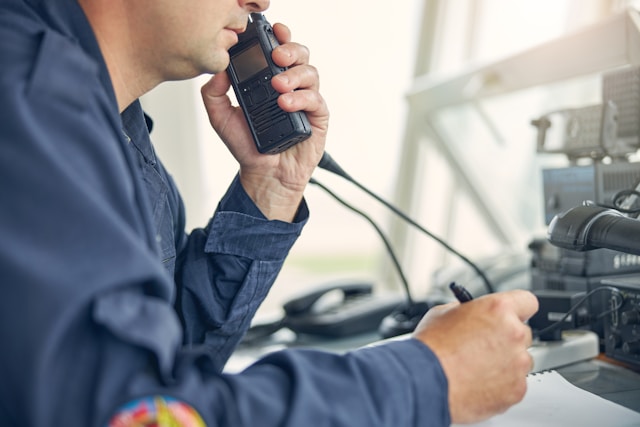
Public safety telecommunicators are the unseen heroes behind emergency responses, pivoting to ensuring that first responders are dispatched efficiently and effectively. Their work, often conducted from a communication or emergency operations center, involves a unique blend of technical skills, quick thinking, and emotional resilience. This article explores the key responsibilities and skills required for public safety telecommunicators, shedding light on their crucial role in emergency management.
The Core Responsibilities of Public Safety Telecommunicators
Handling emergency calls is at the heart of a public safety telecommunicator’s role. The process begins with answering calls promptly and gathering vital information, such as the nature of the emergency, the location, and any immediate threats. This information is crucial for determining the appropriate response and dispatching the correct emergency services.
Dispatching First Responders
Once the initial information is gathered, telecommunicators must quickly and accurately dispatch first responders to the scene. This involves using sophisticated communication systems and databases to relay information to police officers, firefighters, paramedics, and other emergency personnel. Ensuring that responders receive accurate and timely information is essential for effective crisis management and can significantly impact the outcome of the emergency.
Providing Support and Guidance
Public safety telecommunicators often provide vital support and guidance to callers while emergency services are en route. This can include offering instructions on performing first aid, calming individuals down, or managing a situation until help arrives. This aspect of the role requires a high level of empathy and clear communication skills, as telecommunicators must remain calm and composed while addressing the needs of distressed individuals.
Monitoring and Updating Information
Throughout an emergency, telecommunicators must continuously monitor and update information. This involves tracking the status of dispatched units, managing resources, and providing updates to responders and callers. Keeping all parties informed ensures that the response is coordinated and that any changes in the situation are addressed promptly.
Documentation and Reporting
Accurate documentation and reporting are critical components of a telecommunicator’s responsibilities. They must log all calls, actions taken, and information relayed during an emergency. This documentation is essential for legal purposes, departmental records, and post-incident analysis. It also helps evaluate the response’s effectiveness and identify areas for improvement.
Essential Skills for Public Safety Telecommunicators
Effective communication is the most crucial skill for public safety telecommunicators. They must convey information clearly and concisely to both callers and emergency responders. This includes listening actively, interpreting information accurately, and relaying messages without ambiguity. Strong verbal communication skills are complemented by the ability to write detailed reports and documentation.
Technical Proficiency
Telecommunicators must be proficient in using various technical systems and tools. This includes operating computerized dispatch systems, radio communication devices, and geographic information systems (GIS). They must also be comfortable with software that tracks and manages calls, dispatches, and other operational tasks. Technical proficiency ensures that telecommunicators can efficiently handle the high volume of information and tasks associated with emergency response.
Decision-Making and Problem-Solving
Making quick and effective decisions is vital for public safety telecommunicators. They often face situations where time is of the essence, and they must analyze information rapidly to determine the best course of action. Problem-solving skills are essential for addressing unforeseen issues and adapting to changing circumstances during emergencies.
Emotional Resilience
Working in emergency communications can be emotionally challenging. Telecommunicators are frequently exposed to distressing situations and must manage their stress while supporting others. Emotional resilience is crucial for maintaining composure, managing stress, and preventing burnout. Telecommunicators must also exhibit empathy and compassion while remaining professional and focused.
Attention to Detail
Attention to detail is essential for public safety telecommunicators. They must accurately capture and relay information, ensuring that no critical details are overlooked. This skill helps prevent errors that could impact the effectiveness of the emergency response and ensures that all aspects of the incident are addressed thoroughly.
Teamwork and Collaboration
Although much of a public safety telecommunicator’s work involves individual tasks, teamwork and collaboration are equally important. Telecommunicators must work closely with other team members, including dispatchers, emergency responders, and supervisors. Effective partnership ensures that the response to an emergency is coordinated and efficient.
The Challenges Faced by Public Safety Telecommunicators
Public safety telecommunicators often work in high-pressure environments where split-second decisions can make a significant difference. The fast-paced nature of the job, combined with the need to manage multiple tasks simultaneously, can be stressful. Telecommunicators must be prepared to handle the job’s demands while maintaining a calm and focused demeanor.
Exposure to Distressing Situations
Telecommunicators are frequently exposed to distressing and traumatic situations. Handling calls involving severe injuries, deaths, or other critical incidents can take an emotional toll. Telecommunicators need access to support resources and strategies for managing the emotional impact of their work.
Maintaining Accuracy Under Stress
In emergencies, maintaining accuracy and attention to detail is crucial. Telecommunicators must ensure all information is correctly recorded and communicated, even under intense pressure. Mistakes or miscommunication can have serious consequences, making it essential for telecommunicators to stay focused and precise.
Public safety telecommunicators are indispensable to the emergency response system, providing essential support and coordination during crises. Their role demands unique skills, including effective communication, technical proficiency, and emotional resilience. Understanding the responsibilities and challenges faced by public safety telecommunicators highlights their work’s importance and their vital contribution to public safety and emergency management. By recognizing and supporting these professionals, we can better appreciate their crucial role in keeping our communities safe.